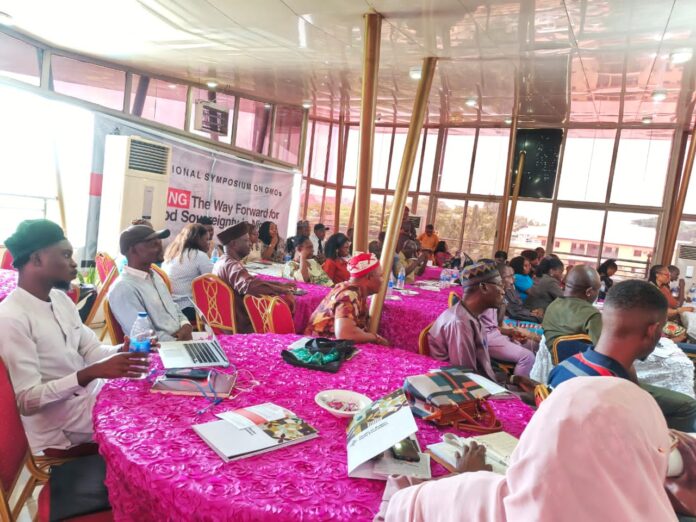By Promise Eze
Stakeholders at a national symposium in Abuja have called for the rejection of genetically modified organisms (GMOs) in Nigeria’s food system.
They urged the government to restructure agriculture to reduce dependence on foreign control, imported ideas, and corporate interests.
The meeting, organised by the Health of Mother Earth Foundation (HOMEF), brought together farmers, researchers, civil society groups, youth and women’s groups, policy advocates, and the media.
Participants warned that embracing GMOs without proper checks could weaken Nigeria’s food sovereignty.
Nnimmo Bassey, Executive Director of HOMEF, said GMOs represent “a paradigm shift in agriculture, one that prioritises profits over people and the environment.”
He argued that GMOs have not been proven to boost food production. “Tanzania achieved food sufficiency without GMOs by supporting local farmers and promoting organic food production,” he said.
Bassey faulted government agencies for promoting GMOs. He criticised the National Biosafety Management Agency (NBMA) and the National Biotechnology Development Agency (NABDA).
“These two agencies of government cannot be excused for seeing themselves as infallible and even as being the government itself. They falsely see GMOs as a one size fits all solution. There is obviously an open conspiracy to counter our best interests while locking in colonial controls over our agricultural and food systems,” he said.
At the end of the symposium, participants issued a joint statement. They asked the Federal Government to place a moratorium on all new GMO approvals.
They also demanded a review of the NBMA Act to include stronger safeguards, independent oversight, and public participation.
Other recommendations included tackling food loss, strengthening agricultural infrastructure, and supporting small-scale farmers with access to land, credit, markets, and non-GMO seeds.
They urged the government to invest in agroecology and revive the agricultural extension system.
They also asked the Ministry of Agriculture to establish seed and gene banks across states and local governments.
The symposium came on the heels of arguments, discussions, and endorsements of GMOs in Nigeria.
In August, the Director-General of the National Agency for Food and Drug Administration and Control (NAFDAC), Mojisola Adeyeye, said GMOs are safe for human health if safety protocols are followed.
“GMOs are genetically modified foods when it comes to food, and they are not bad for us,” Adeyeye told Channels Television.
“They are not bad for us, depending on what type of foods they are and whether these safety considerations have been taken.”
The Federal Government has also announced plans to introduce the labelling of GMOs to ensure transparency and public trust.
John Atanda, Director of Food and Drug Service at the Federal Ministry of Health and Social Welfare, said the ministry would work with NAFDAC and NBMA to enforce proper labelling.
He made this known at a sensitisation workshop on GMOs for Directorate Officers organised by the Open Forum for Agricultural Biotechnology (OFAB) in September.




